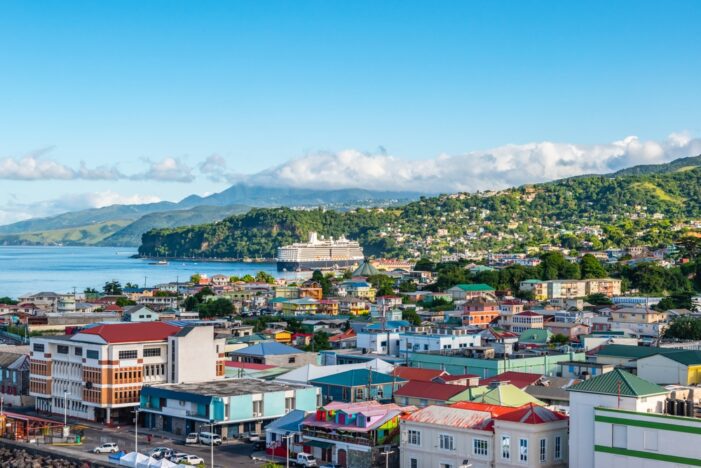Nestled in the Eastern Caribbean, Dominica—known as the “Nature Island”—blends lush volcanic landscapes, vibrant Afro–Creole identity, and forward-looking investment pathways, especially through its Citizenship by Investment (CBI) program. For African American investors drawn to culturally resonant ventures with global mobility, Dominica offers an accessible and authentic environment.
- Cultural Heritage & Identity 🌿
Dominica’s culture fuses Kalinago Indigenous, African, French, and British roots. Home to the only remaining Kalinago Territory in the Caribbean—today about 3,000 people live on a special reserve and preserve traditional crafts like weaving and canoe-building.
Music and cultural expression have deep Creole influence: Chanté Mas and Lapo Kabrit, traditional masquerade performances, give way to cadence-lypso, bouyon, and jing ping—genres born on Dominica and still celebrated through events like the World Creole Music Festival each October, which draws fans and artists from Africa, North America, and the Caribbean.
Local cuisine highlights Creole culinary heritage, with signature dishes like saltfish and bakes, cornmeal porridge, tamarind drinks, soursop juice, and sauces made from local fruits, blending Indigenous, African, French, and English influences.
- Language Landscape
English is Dominica’s official language and is spoken island-wide, making accessibility straightforward for US-based investors. Dominican Creole—a French-based Creole also called Kwéyòl—is widely used especially among older generations, while Kokoy (Cockoy), a pidgin between English Creole and Dominican Creole, flourishes in villages like Marigot and Wesley. These linguistic layers reflect a strong Afro-Creole identity that may resonate well with African American visitors and partners.
- Economic Resources & Key Sectors
Ecotourism & Nature Economy
Dominica is framed as the “Nature Island” due to its rainforests, hot springs (like Boiling Lake), waterfalls, diving reefs, and whale watching areas—making ecotourism the island’s fastest-growing sector. Cruise stopovers and sustainable tourism projects are expanding, supported by improved port infrastructure and a new international airport planned for completion by 2026.
Agriculture & Exports
Agriculture remains vital, employing about 40% of the workforce and contributing roughly 20% of GDP—mainstays include bananas, citrus, coconuts, cocoa, herbal oils, and small-scale manufactured exports like soap. These sectors present opportunities in agro-processing or health-conscious food brands aligned with eco-tourism.
Emergent Financial Services
Dominica is expanding into offshore financial services, including offshore banking, digital service firms, and general corporate activities, regulated by the Financial Services Unit under the Ministry of Finance. New investors in fintech or shared-services platforms may find rising opportunity in this developing hub.
- Citizenship by Investment & Incentives
CBI Program Options
Dominica offers two primary, streamlined avenues for economic citizenship:
- Economic Diversification Fund (EDF) contribution starting at USD 200,000 for a single applicant; USD 250,000 for families of up to four; plus due‑diligence and processing fees.
- Approved real estate investment in government-designated projects with the same minimum threshold, refundable after 3–5 years and rental yield of 2–5% annually.
Applicants enjoy lifetime citizenship, no residency requirements, dual citizenship, and visa-free access to ~145 countries (EU, UK, China, Singapore, etc.). Independent audits from firms like PwC validate that the program contributes significantly (approximately 26% of GDP in 2018) to national development—including building climate-resilient housing, airports, and healthcare centers following major hurricanes.
Tax & Business Incentives
Under the Fiscal Incentives Act, Dominica grants investment tax holidays up to 20 years for approved tourism, IT, renewable energy, agriculture, and manufacturing sectors. The country has no personal income, capital gains, inheritance, or foreign income taxes.
- Opportunities for African American Investors
Cultural & Heritage Tourism
There’s room to cultivate heritage tourism ventures that tap into African–Diaspora narratives: boutique lodges paying homage to Creole culture; music festivals linked to the World Creole Music Festival; culinary pop‑ups celebrating Creole cuisine; eco-lodges integrated within rainforest preserves.
Creative Economy & Diaspora Partnerships
Collaborations could include music programming, cultural storytelling residencies, or cross-Caribbean performances featuring Dominica’s music like cadence-lypso and bouyon. African American creatives can partner to co-develop content or festivals, building diaspora networks and cultural exchange.
Eco-agriculture & Wellness Ventures
Invest in agro-tourism, organic herbal oils, coconut processing, or farm-to-table experiences—leveraging local crops and supporting sustainable livelihoods. Eco‑lodging or wellness retreats in natural settings could attract global audiences seeking socially conscious travel.
Financial Services & Digital Operations
Digital business services, payment processing, boutique fintech startups, or telehealth platforms could tap into Dominica’s nascent offshore service sector—benefiting from Caribbean Basin Initiative access, low tax exposure, and developing regulatory frameworks.
- Strategy & Best Practices
- Define your goals: Are you pursuing residency, cultural legacy, financial return, or environmental impact?
- Choose investment route: EDF contributions for faster citizenship; real estate for passive income plus refundable investment.
- Partner locally: Engage the Discover Dominica Authority, local cultural bodies, or creative tourism partners to ensure authenticity and sustainability.
- Consult local counsel: Legal advice is key to structure real estate deals properly under CBI and access incentives under the Fiscal Incentives Act.
- Incorporate cultural identity: Integrate Afro-Creole storytelling, Dominican Creole, culinary heritage, and music into branding and visitor experiences.
- Embed ESG principles: Projects aligned with climate resilience, eco-tourism, or sustainable agriculture may unlock additional incentives and community impact.
- Outlook & Summary
Dominica presents a rare blend of ecological richness, vibrant Afro–Creole heritage, and efficient investment pathways—especially via its Citizenship by Investment program. With its affordability, minimal barriers to entry, strong development track record, and fast-growing tourism and eco-economy sectors, the island offers meaningful opportunities for African American investors looking to align returns with values.
Whether through heritage-driven tourism, creative partnerships, agro and wellness ventures, or emerging financial services, investors can craft ventures that honor identity and support sustainable impact. Dominica stands as a living demonstration that profit, mobility, and purpose can flourish hand-in-hand.


